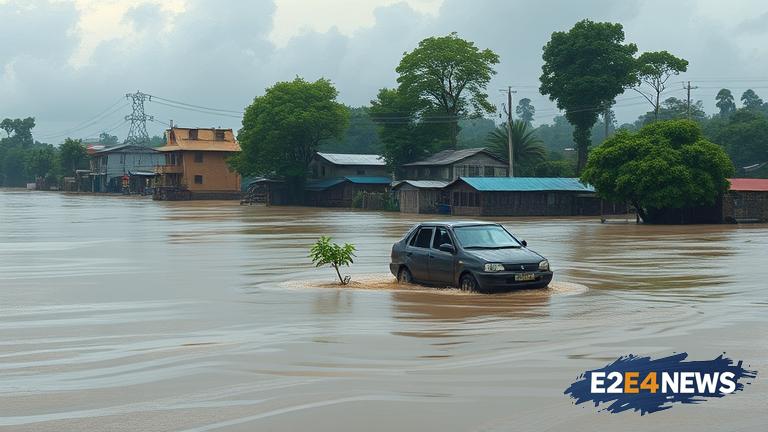The world is witnessing a surge in devastating floods, with scientists attributing the rise to the escalating climate crisis. As global temperatures continue to soar, the consequences of climate change are becoming increasingly evident. Floods are now occurring more frequently and with greater intensity, causing widespread destruction and loss of life. The alarming trend has prompted experts to sound the alarm, warning of the dire need for immediate action to mitigate the effects of climate change. Rising sea levels, melting glaciers, and altered precipitation patterns are all contributing to the growing threat of floods. The consequences of inaction will be catastrophic, with millions of people at risk of displacement, injury, or death. Climate change is also having a disproportionate impact on vulnerable communities, exacerbating existing social and economic inequalities. The economic toll of floods is also staggering, with the total cost of damages projected to reach unprecedented levels in the coming years. Furthermore, the psychological trauma caused by floods can have long-lasting effects on individuals and communities. The scientific consensus is clear: human activities, particularly the burning of fossil fuels and deforestation, are significantly contributing to the climate crisis. The window for action is rapidly closing, and the need for a collective response to address the crisis has never been more pressing. Governments, corporations, and individuals must work together to reduce greenhouse gas emissions, invest in climate resilience, and support affected communities. The development of sustainable infrastructure, such as sea walls and green roofs, can help mitigate the impact of floods. Additionally, climate-resilient agriculture and water management practices can reduce the risk of flooding and promote food security. The international community must also prioritize climate change adaptation and mitigation efforts, providing support to countries most vulnerable to the impacts of climate change. The United Nations’ Sustainable Development Goals (SDGs) provide a framework for addressing the climate crisis, with SDG 13 (Climate Action) emphasizing the need for urgent action. The Paris Agreement, which aims to limit global warming to well below 2°C, is a critical component of the global response to climate change. However, current country pledges under the agreement are insufficient to meet the 1.5°C target, highlighting the need for increased ambition and cooperation. The climate crisis is a global problem that requires a global solution, and the time for action is now. The fate of future generations depends on our ability to work together to address the climate crisis and reduce the risk of devastating floods. The science is clear, the consequences are dire, and the need for action is urgent. We must rise to the challenge and take immediate, collective action to mitigate the effects of climate change and ensure a safer, more sustainable future for all. The clock is ticking, and the world is watching. It is time for leaders to demonstrate their commitment to addressing the climate crisis and protecting the most vulnerable communities from the devastating impacts of floods.
